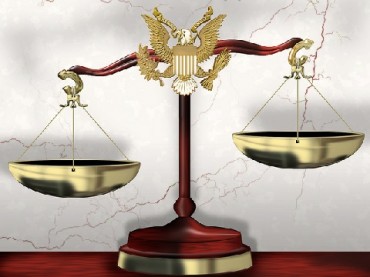
When the Department of Education’s Office for Civil Rights settled its Title IX case with Harvard Law School, it included a provision for no apparent reason: Harvard University must “make clear that no School or unit-based policy, procedure or process can reverse or alter a factual finding, remedy, or other decision made through the University’s Title IX Procedures” (page 14).
The thing is that Harvard University’s pre-existing policy is already university-wide. The feds know this. But Harvard’s individual schools (including Harvard Law) had set their own policies before July.
Two experts on Title IX law think the odd provision amounts to the feds stomping down on the 28 Harvard law faculty who sharply criticized the university’s new sexual-misconduct policy for violating due process – and going far beyond Title IX regulations.
Lawyer Hans Bader, a former Office for Civil Rights staffer, noted the odd provision in his Examiner.com column analyzing the extraordinarily broad settlement, calling it a new requirement created “out of thin air”:
This demand was wholly absent from OCR’s prior guidance, but rather likely a slap at Harvard Law faculty who had complained that under Harvard’s new sexual harassment policy, the “provision purporting to leave the schools with decision-making authority over discipline is negated by the university’s insistence that its Title IX compliance office’s report be totally binding with respect to fact findings and violation decisions.”
Brooklyn College professor KC Johnson, who wrote a book about the Duke lacrosse rape case, writes at Minding the Campus that much of the settlement amounts to “little more than OCR lashing out at the Harvard Law professors”:
And so, Harvard Law is now required to formally assert that no Law School inquiry can “reverse or alter a factual finding” made through the current, due process-unfriendly policy. (OCR seems worried that the law professors might overcome [Harvard Law School Dean Martha] Minow’s hostility to due process and set up a policy outside the bounds of the university’s.) The law school must now formally clarify that the university’s new policy supersedes the old policy, that HLS now uses the preponderance-of-evidence threshold, and that the accuser has the right to appeal a not-guilty finding. (Each of these components is already present in Harvard’s new policy; the “violation” seems to be that the policy doesn’t contain a one-sentence summary of each provision.) The net result: amendments to the current policy that will amount to a “clarification” rejecting, on an almost line-by-line basis, the assertions made by the 28 Harvard Law professors. This is pettiness by resolution.
Much like Southern states had to get Justice Department approval to change their election rules until the Supreme Court threw out the requirement in 2013 as outdated and unsupported, the Department of Education is reminding Harvard Law who’s boss. Johnson says:
OCR sent one final message to the 28 law professors. Any subsequent change in Harvard Law’s sexual assault policy must obtain OCR approval. Does anyone want to guess what the chances are that OCR would ever sign off on the law professors’ desire to restore due process?
Harvard law professor Elizabeth Bartholet has been smack-talking the settlement in the media, telling the Wall Street Journal that the agency would “eventually” lose in federal court on its unique interpretation of Title IX rules:
The courts’ decisions to date, including the U.S. Supreme Court, show a much more balanced approach to sexual harassment, one which recognizes the importance of vindicating the rights of those victimized by wrongful sexual misconduct, while at the same time protecting the rights of those wrongfully accused, and protecting the rights of individual autonomy in romantic relationships.
Read the Bader and Johnson columns. And in case you forgot, the Office for Civil Rights probably has no authority to require this.
Like The College Fix on Facebook / Follow us on Twitter
IMAGE: Donkey Hotey/Flickr






Please join the conversation about our stories on Facebook, Twitter, Instagram, Reddit, MeWe, Rumble, Gab, Minds and Gettr.